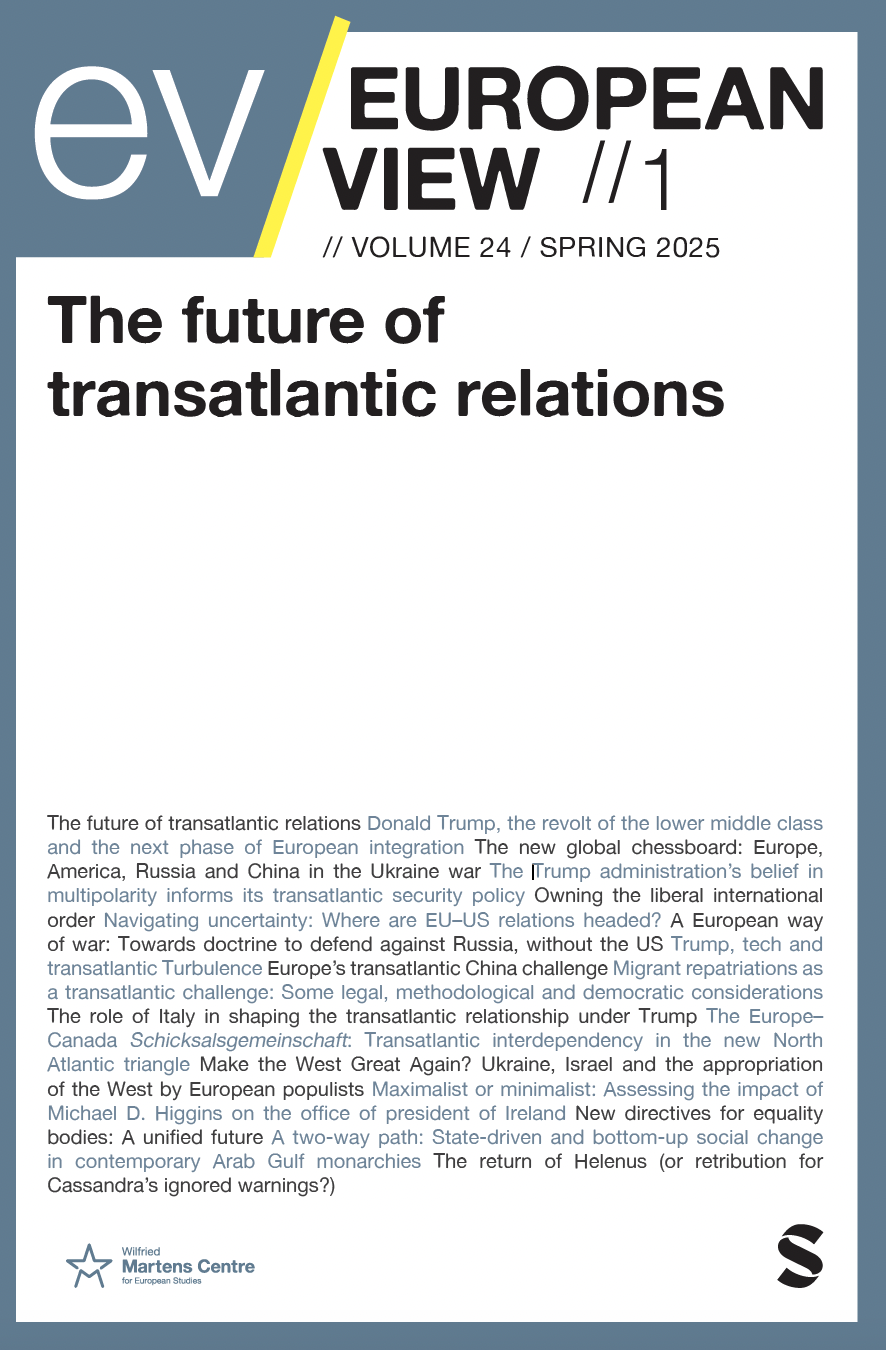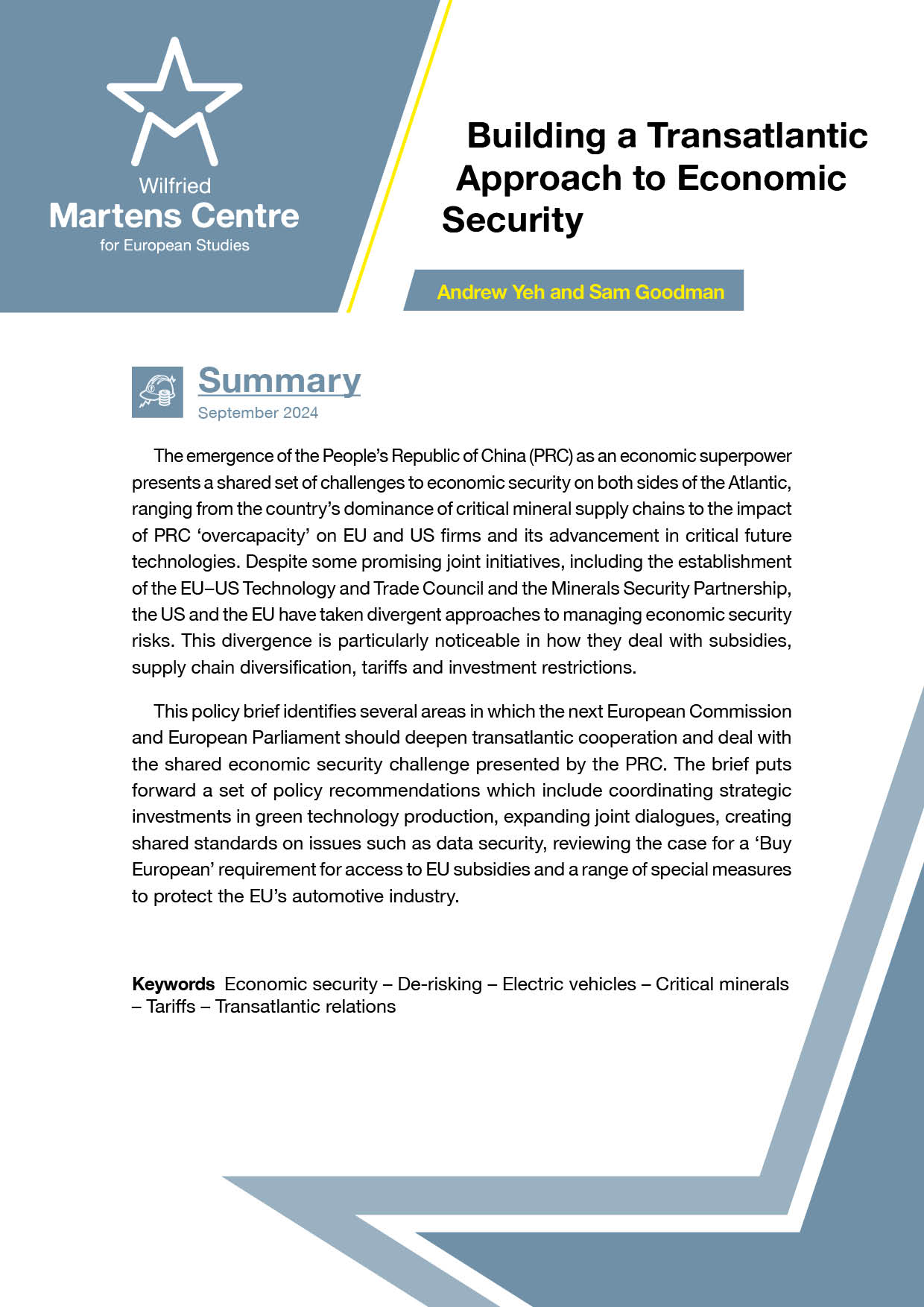What MAGA 2.0 Means for America
06 November 2024

Donald Trump’s 2024 victory marks the final chapter of a stunning political comeback by the 45th, and soon to be 47th, President of the United States. Over the course of his nearly 10-year political career, Trump’s political movement, often referred to as Make America Great Again, or MAGA for short, has evolved in subtle but meaningful ways which came to the fore in this latest election cycle.
MAGA originally capitalised on the anxiety and frustrations of economically disenfranchised white voters of the de-industrialised Rust Belt, with a hefty pinch of nativism and xenophobia. While the movement eventually branched out to cover culture war issues such as transgender rights and critical race theory, the impression was always that Trump and his movement sought to cater to that original voter; white, rural, and often lacking a college education. Trump’s 2024 VP pick, JD Vance, seems to confirm this; he came to national attention by writing a memoir about growing up in an Appalachian community racked by substance abuse and generational poverty.
But data around the 2024 election shows this is no longer the case. Trump took 8% and 12% of the Black vote in 2016 and 2020 respectively, and 28% and 32% of the Hispanic vote in the same cycles. In 2024, exit poll data shows Trump maintained his standing among Black voters despite Harris being party African-American herself, and obtained nearly 45% among Latinos (this figure climbs to 54% among Latino men).
In other words, MAGA can no longer be written off as simply a populist, nativist anomaly. The GOP is on track to win both the House and the Senate, which would give Trump at least 2 years of near-absolute power to enact large parts of his admittedly nebulous policy vision. Add to this the fact that Republicans are on track to win the popular vote in a presidential election for the first time since 2004 (and only the second time since 1988), and MAGA is a more viable identity for the Republican Party than at any point since Trump’s appearance on the political scene, in large part thanks to the incorporation of these minority votes.
Obviously, Republicans this cycle benefitted massively from the runaway inflation that has dogged the US economy and the incumbent Democratic administration, just like how Democrats benefitted from the COVID pandemic flaring up on Trump’s watch in 2020. It might also be that as in every other major election globally this year, incumbents lost due to a perceived negative outlook for the country (France and the UK, to name only a couple). Regardless, voters of all backgrounds made the conscious decision to embrace Trump’s MAGA agenda, believing it to be a preferable alternative to Harris and continued Democratic rule.
There is a serious lesson here for the Democrats. Granted, Kamala Harris only had a few short months in the limelight to make herself known to voters. But the problem lies deeper; in fact, Harris did not outperform Biden’s 2020 performance in a single state, and only improved on his margin in 240 counties as of the time of writing this piece – there are 3,144 across the United States. The party will need to rethink what it considers to be an adequate political offering for the most important election in the world moving forward.
For starters, opposition politics do not work; citizens vote for a better tomorrow, not because a candidate promises not to behave to like their opponent. Secondly, the party can no longer take minorities for granted, but acknowledge and concretely incorporate their needs into the party platform; token gestures won’t suffice. This leads into the final point: drop the culture war. Voters don’t choose the President over ideological debates, they prioritise practical issues. This will be especially true come 2026, when Democrats will aim to re-take one or both chambers of Congress. This will demand a laser-like focus on real policy answers to everyday concerns in campaign messaging.
For American democracy at large, this result is actually rather positive: this convincing, broad-based victory for Trump definitively shows there is no secret conspiracy to keep him out of power, as he has continually alleged since refusing to concede defeat in the 2020 election. Without any reason to complain about the state of American democracy, he will hopefully focus his efforts on delivering economic growth as opposed to tearing down US democratic institutions, which he has alluded to multiple times.
These themes were central in driving voter behaviour this year; exit polls reveal 34% of voters said democracy mattered most to their votes, and 31% said the economy was their top concern. Let’s hope the first group takes its civil society guardrail role seriously, and the second group keeps the administration focused on what got them elected in the first place.
ENJOYING THIS CONTENT?




















